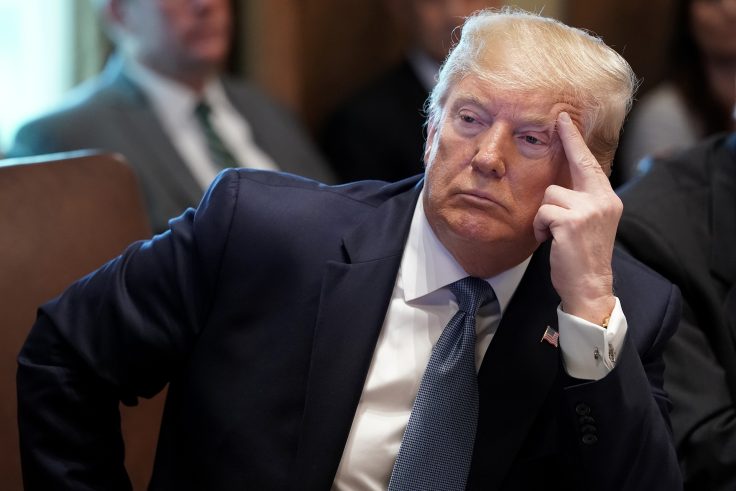The president has reportedly approved a plan of attack but has yet to make a final decision on whether to join Israel’s campaign against Tehran’s nuclear program

President Donald Trump will decide at some time within the “next two weeks” whether the United States attacks Iran, the White House said Thursday after the president and his national security team gathered for a meeting in the Situation Room.
The White House determined “there’s a substantial chance of negotiations that may or may not take place with Iran in the near future” and is waiting to see if diplomacy pans out before launching a strike on Tehran’s major nuclear sites.
“I will make my decision whether or not to go within the next two weeks,” Trump said in a statement read by Press Secretary Karoline Leavitt during Thursday afternoon’s White House press briefing.
“The president’s top priority right now is ensuring that Iran cannot obtain a nuclear weapon and providing peace and stability in the Middle East,” Leavitt said.
Leavitt made clear that any potential nuclear deal with Iran would include a full ban on uranium enrichment and block the Islamic Republic from ever having the materials to produce an atomic bomb. The Trump administration laid out similar conditions before Israel’s preemptive strike last week, but Iran categorically rejected the terms of that offer. There is as yet no sign that the ongoing war has softened Tehran’s position.
Trump said in recent days he would only accept Iran’s “unconditional surrender,” drawing a defiant response from Supreme Leader Ali Khamenei. The ayatollah threatened instead to inflict “irreparable damage” on American forces in the region if the United States joins Israel’s fight.
Even with a two-week window for negotiations, Trump could decide to green-light a U.S. strike at any point. The United States this week moved significant military assets into the region, including the B-2 stealth bombers that would be needed to destroy Iran’s Fordow nuclear enrichment plant, which lies deep within a mountain and under 300 feet of concrete.
Iran, meanwhile, shows no sign of backing down or giving into U.S. demands. If the Trump administration’s interlocutors fail to make progress on a diplomatic solution, the president could launch an attack well before the deadline expires.
Ali Larijani, a senior adviser to Khamenei, described Trump’s surrender order as “a big mistake,” saying on Thursday afternoon that Tehran is prepared for war with America.
“We do not seek war, but we are passing through a critical stage and must stand firm to defend ourselves and punish aggressors,” Larijani said in an interview on state-controlled television.
Iran’s Supreme National Security Council in a Thursday statement echoed that sentiment, saying that “if any third party intervenes in this aggression, Iran will confront it immediately according to a predetermined plan.”
Iranian officials also threatened to shut down the Strait of Hormuz—a critical shipping lane in the Persian Gulf—if American forces attack.
“The Islamic Republic of Iran will allow freedom of navigation in the Strait of Hormuz only if the Iranian strategic interests are not endangered,” the country’s state-controlled media said Thursday, citing Iranian lawmakers. “If the Global Arrogance (US and Western states) joins [the] Israeli regime directly, [Tehran] will shut the strategic [waterway] as the good and easy choice.”
Israel has continued to hammer Iran’s nuclear sites, intelligence outposts, and strategic missile launchers. Its barrage on Wednesday included an early morning strike on the Arak nuclear reactor, a heavy-water plutonium facility that gave Iran a second path toward a bomb.
















